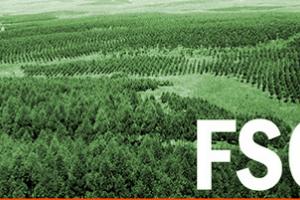The Veracel pulp mill is located in the south of the Brazilian state of Bahia, some 45 kilometres from the coast, on the border between the municipalities of Eunapolis and Belmonte. Veracel is a corporation in which the Swedish-Finnish group Stora Enso and the Brazilian Aracruz group have equal shares, today managing one of the world’s largest eucalyptus plantation and industrialization projects.
Brazil
Other information
29 December 2006
Today [December 12], hundreds of indigenous people from the seven Tupinikim and Guarani communities in the state of Espirito Santo, Brazil, occupied the harbor Portocel, from where the cellulose of the company Aracruz Celulose is being exported to Europe, the USA and Asia.
Other information
30 November 2006
In Brazil, production through agriculture of a new energy model is present every day in the mass media and increasingly the development of this field is gaining social endorsement and economic justification. Rapidly, the use of land to produce food is sharing its space with the fuel production. This change in social perception is very evident in the repeated news features showing farmers and landowners as the new “oil field” owners.
Bulletin articles
30 October 2006
Infrastructure development in the name of regional economic integration poses one of the greatest challenges to environmental sustainability and social justice today. The initiative for Integration of Regional Infrastructure in South America (IIRSA) is a striking example of this new trend. IIRSA proposes a series of large-scale, high-risk and debt-heavy mega-projects that would result in extensive alterations to landscapes and livelihoods in the region.
Bulletin articles
30 October 2006
On 11 September 2006 the Brazilian Institute for the Environment and Renewable Natural Resources (IBAMA) (the Brazilian environmental authority) approved the Environmental Impact Assessment on the construction of two dams in Brazilian territory on the Madera River, the largest tributary to the Amazon River.
Bulletin articles
30 September 2006
In 2004, the Brazilian Network campaigning against the spread of tree plantations came up with the idea of instituting an International Day Against Monoculture Tree Plantations on 21 September, which is National Tree Day in that country. The idea was supported by organizations from all over the world, who since then carry out a number of special activities on this day.
It is important to stress that this is certainly not a day aimed at opposing tree planting in general, but an activity focusing on one type of plantation in particular: large scale tree monocultures.
Bulletin articles
30 September 2006
A team comprising Alvaro Santos, Emiliano Camacho and the author travelled from Montevideo, Uruguay to the state of Para in the Brazilian Amazon in the framework of a national and international campaign on “An end to violence in rural areas!” “Cut out this scourge from the root!” promoted by the Latin American Secretariat of the International Union of Food workers (Rel-UITA) and the Brazilian National Confederation of Agricultural Workers (CONTAG), against rural violence in that country.
Bulletin articles
30 September 2006
The PEFC was set up between 1998 and 1999 by the national forestry interest groups – mainly associations of small-forest owners in several European countries as the Pan European Forest Certification Scheme. It changed to its current name after having endorsed other non-European schemes. The scheme is governed by the PEFC Council, which consists of representatives of national certification schemes and are the PEFC’s members. The PEFC is not a single certification scheme with a single standard, but a programme for the endorsement of national certification schemes.
Bulletin articles
30 September 2006
The Brazilian CERFLOR certification programme, endorsed by the international PEFC (Programme for the Endorsement of Forest Certification schemes), was officially launched in 2002 by the Ministry of Development, Industry and Trade and started to operate in March 2003.
Bulletin articles
30 September 2006
African logging concessions are usually seen as units of forest management. However they are better seen as a kind of currency in a larger system of power politics and exploitation.
Other information
1 September 2006
We, the undersigned entities and individuals of the Alert Against the Green Desert Network, wish to express our concern about the history and awardees of the FSC certifications in Brazil, thus legitimating large scale tree monocultures, although the systematic violation of social, environmental and economic rights by these large agrochemical plantations has been thoroughly evidenced.
1 September 2006
Press Release - September 1, 2006


